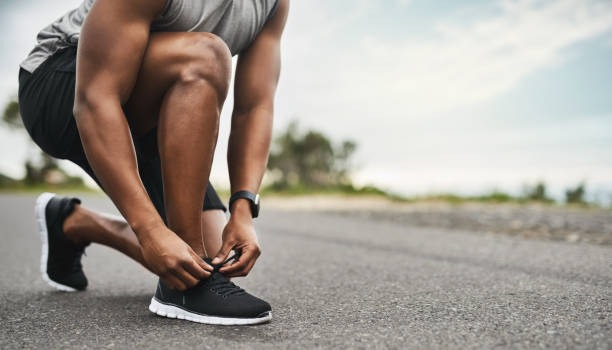Strengthening Women via Engaging in Physical Sports
Admin

Physically involved sports provide women with more than just fitness and physical strength. They foster confidence, resilience, and valuable life skills while building friendships and promoting well-being. Despite facing challenges such as social stigma and lack of access, more women are embracing sports as a tool for empowerment.
Sports have always played a significant role in shaping people, providing more than just physical strength. When it comes to women, physically involved sports offer an even deeper impact, helping them build character, confidence, and life skills beyond the playing field. In the past, men had more opportunities to explore sports and gain the valuable lessons they offer, but today, women are catching up and gaining access to these benefits.
Although there are still barriers to participation, the world of sports has opened up for young women, creating a platform for them to grow physically, mentally, and emotionally stronger. Here you can explore the benefits of women participating in physically involved sports, the challenges they face, and how overcoming them helps shape them into confident, capable individuals ready to face life's hurdles.
Benefits of Playing Sports for Women
Building Skills and Confidence
Sports are an excellent avenue for women to develop goal-setting, teamwork, and leadership skills. Physically involved sports like soccer, basketball, or even rodeo provide opportunities for women to become stronger and more capable. These activities demand discipline, dedication, and mental toughness, teaching players how to set goals, work toward them, and handle both wins and losses with grace.
Learning to face challenges on the field, like competing with stronger teams or dealing with the pressure of performing under a time limit, mirrors the challenges women face in real life. These experiences help build resilience and self-confidence, which translate into other areas of their lives. As they continue to grow, women find that the lessons learned in sports, whether it's how to stay calm under pressure, how to handle defeat, or how to stay focused on a goal, become valuable tools for navigating personal and professional challenges.
Cultivating Friendships and Diversity
When we talk about personal growth, sports also provide a social platform for women to connect with others. Through physically involved sports, women are exposed to people from different backgrounds, cultures, and experiences, which broadens their social circle and helps them learn the importance of diversity and inclusion. By working together as a team, women learn to appreciate different perspectives and to respect their teammates’ unique strengths.
For many women, the friendships formed through sports extend beyond the field, becoming lifelong connections. These relationships are built on mutual respect and shared experiences, whether it's celebrating a hard-fought victory or supporting each other through a tough loss. Over time, these diverse experiences help build a strong foundation of tolerance, respect, and understanding, making women better equipped to handle the complexities of the world around them.
The Role of Sports in Health and Well-being
Physically involved sports for women is the positive impact they have on health. Physical activity is essential for maintaining a healthy lifestyle, and women who participate in sports tend to have better overall health than those who do not. Engaging in regular physical activity helps reduce the risk of developing chronic conditions such as heart disease, diabetes, and obesity.
Sports can also help prevent certain cancers, such as breast cancer. Research shows that teenage girls who engage in at least four hours of exercise per week have a lower risk of developing breast cancer later in life. However, sports also positively impact mental health. Women who participate in sports tend to experience lower rates of depression, anxiety, and stress.
Participating in sports also encourages a balanced lifestyle. Women who play sports are more likely to adopt healthy habits such as eating well, staying hydrated, and getting enough sleep. These habits contribute to overall well-being and help women feel more energetic and focused in their daily lives.
Overcoming Challenges in Women’s Sports
Where there are numerous benefits, women still face several challenges when it comes to participating in sports. Some of these barriers include:
Lack of Access
For many women, especially those living in underserved communities, access to quality sports facilities and programs remains limited. Whether it's due to a lack of funding for school sports or the absence of community programs, many young girls miss out on the opportunity to participate in sports from an early age. This lack of access not only prevents them from enjoying the physical and mental benefits of sports but also limits their potential for personal growth and development.
Social Stigma
Another significant challenge is the social stigma surrounding women in sports. Despite progress over the years, some people still hold outdated views that discourage girls from participating in physically demanding sports. This stigma is often amplified during puberty when young girls may feel self-conscious about their changing bodies and how others perceive them. As a result, many girls drop out of sports during adolescence, missing out on the chance to develop valuable life skills and friendships.
Cost and Funding
The cost of participating in sports can also be a barrier for many women. When school budgets are cut, sports programs, especially those for girls, are often the first to be affected. Families are then forced to turn to private sports organizations, which can be expensive and out of reach for many. According to studies, girls from lower-income families and minority groups are less likely to participate in sports due to these financial barriers.
Lack of Role Models
One of the most critical factors in encouraging young women to participate in sports is the presence of positive role models. Female athletes and coaches provide inspiration and support, showing girls that they too can succeed in sports and life. However, there is still a lack of representation when it comes to female role models in sports, particularly in leadership roles such as coaching. This gap can discourage girls from pursuing sports, especially when they don't see women in positions of power and influence.
Breaking Down Barriers
To overcome these challenges, it is essential to create more opportunities for women to participate in sports and to promote a culture that values female athletes. This starts with improving access to sports programs in schools and communities, ensuring that all girls, regardless of their background, have the chance to play. Investing in facilities and resources for women’s sports is a crucial step in leveling the playing field and giving women the same opportunities as their male counterparts.
Addressing the social stigma surrounding women in sports also requires a shift in mindset. This can be achieved through media representation, highlighting the achievements of female athletes, and encouraging girls to see themselves as strong, capable individuals. Parents, teachers, and coaches all play a role in fostering this positive environment by supporting girls’ involvement in sports and challenging stereotypes that hold them back.
Increasing the number of female role models in sports is essential. Women need to see other women in leadership positions, whether it's on the field as athletes or on the sidelines as coaches and mentors. These role models can inspire the next generation of female athletes and show them that success in sports is not only possible but achievable.
The Power of Sports for Women
Physically involved sports provide women with more than just physical strength. They offer an opportunity to develop essential life skills, build lasting friendships, and maintain a healthy lifestyle. While challenges such as lack of access, social stigma, and financial barriers still exist, progress is being made to ensure that more women can participate in sports and enjoy the benefits they offer.
By promoting a culture that values and supports female athletes, society can empower women to reach their full potential, both on and off the field. Whether it’s through building confidence, forming diverse friendships, or improving overall health, sports play a vital role in shaping the future of women around the world. The lessons learned in sports will stay with them for a lifetime, helping them navigate the challenges of life with resilience, determination, and grace.
Stay tuned to Talkaboutladies to get to know more about women’s sports.
Comment:
Your email address will not be published. Required fields are marked *
Search
Related Posts
Oct 5, 2025
Take Care of Your Body with Hume Health: Body Pod to Buy
Hume Health stands at the intersection of innovation and wellness, offering a groundbreaking approach to personal health management.
Oct 23, 2025
The FitVille Way: Walk in Comfort, Live with Ease
Shoes are more than something we wear. They carry us through every step of our day, walking, working, or enjoying time outdoors.
May 6, 2025
Step Confidently with Everyday Ease
Your footwear can guide how your day develops. The correct shoes help support your feet while also enhancing your everyday movements, activities, and comfort.


